Want to know more about the Best Business Administration Schools In the US and make an informed decision? Here is a good place to start.
Navigating the complex landscape of business administration schools in the US can leave aspiring students feeling overwhelmed and uncertain about the right choice for their future.
To alleviate this stress, we have curated a definitive list of the best schools that will help you steer your career in the right direction.
In this blog post, we’ll explore the top business administration schools, shedding light on their unique offerings and strengths. Our insights will ensure you make an informed decision tailored to your career aspirations, setting you on the path to success.
Please note that schools are selected based on our criteria (at the end of the article), ranked by the latest acceptance rate.
Table of Contents
#25. Michigan State University
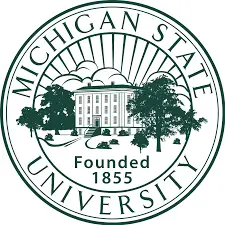

- Acceptance rate: 76%
- Average entry score: 1109-1320 SAT or 23-29 ACT
- Student-to-faculty ratio: 16 to 1
- Estimated cost of attendance (tuition and fees): $29,184-$54,590
- Average earning potential for graduates: $93,900 (College Simply)
Michigan State University’s Broad College of Business provides a wide-ranging business administration program. Students deepen their understanding of business principles and strategies, cultivating critical and analytical thinking skills.
The program gives students the chance to learn by doing, so they are ready for business right after graduation. Graduates are well-equipped to thrive in a dynamic business environment.
Source: MSU Broad College of Business
#24. University of Minnesota, Twin Cities
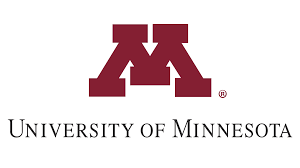

- Acceptance rate: 70%
- Average entry score: 1330-1500 SAT or 27-32 ACT
- Student-to-faculty ratio: 17 to 1
- Estimated cost of attendance (tuition and fees): $23,110-$52,088
- Average earning potential for graduates: $103,400 (College Simply)
The University of Minnesota, Twin Cities, offers a comprehensive array of business administration courses, including accounting, finance, and management.
With a broad focus on business and technology, the school’s academic programs provide students with the opportunity to explore a variety of career paths. Experienced faculty are available to assist students with their academic pursuits.
Graduates find career success in the finance and consulting sectors, supported by the university’s strong alumni network and exceptional career support services.
Source: Carlson School
#23. University of Illinois at Urbana-Champaign
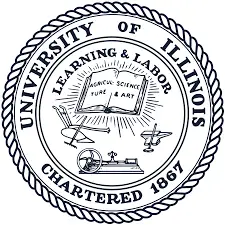

- Acceptance rate: 60%
- Average entry score: 1210-1470 SAT or 27-33 ACT
- Student-to-faculty ratio: 21 to 1
- Estimated cost of attendance (tuition and fees): $33,060-$50,510
- Average earning potential for graduates: $91,500 (College Simply)
The University of Illinois’ Gies College of Business offers a thorough business administration program, emphasizing current trends and technologies. Students build a strong foundation in business principles and strategies while refining their critical thinking abilities.
The program provides students with the opportunity to gain practical experience so that they may be successful in the business world. Graduates are well-equipped to thrive in a dynamic business environment and contribute to the future of the business world.
Source: Gies College of Business
#22. University of Maryland, College Park


- Acceptance rate: 52%
- Average entry score:
- 1280-1470 SAT or 30-34 ACT
- Student-to-faculty ratio: 18 to 1
- Estimated cost of attendance (tuition and fees): $10,955-$50,000
- Average earning potential for graduates: $100,600 (College Simply)
The University of Maryland, College Park, is known for its diverse business administration curriculum, covering a wide range of topics.
The school’s business administration program is geared toward students who want to focus on marketing, management and leadership, allowing them to explore a variety of career paths after graduation.
Many graduates often find rewarding careers in the banking and consulting industries with the help of the university’s robust alumni network and career support services.
Source: Maryland Smith
Similar articles like this:
- 25 Best Schools For Insurance Degrees In The US
- Best Schools For International Relations
- 25 Best Digital Marketing Schools In The US
#21. The University of Texas at Austin
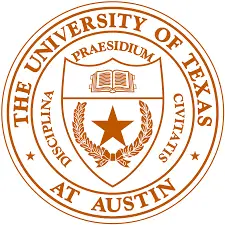

- Acceptance rate: 29%
- Average entry score: 1230-1480 SAT or 29-34 ACT
- Student-to-faculty ratio: 18 to 1
- Estimated cost of attendance (tuition and fees): $28,928-$57,512
- Average earning potential for graduates: $127,200 (College Simply)
The University of Texas at Austin offers a diverse array of courses in business administration, encompassing accounting, finance, and management. Students learn hands-on skills in real-world environments through the university’s business incubator and experiential learning programs.
With a strong emphasis on ethics, students at the university can expect to receive a well-rounded education and learn how to apply what they learn in class to real-world scenarios.
The university’s robust internship program offers students opportunities to work with local companies and works toward gaining professional experience before graduation.
Graduates often find rewarding careers in banking and consulting, thanks to the university’s solid alumni network and exceptional career support services that help with job placement and professional development.
Source: McCombs School of Business
#20. University of North Carolina at Chapel Hill
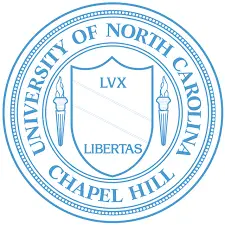

- Acceptance rate: 25%
- Average entry score: 1310-1500 SAT or 29-33 ACT
- Student-to-faculty ratio: 13 to 1
- Estimated cost of attendance (tuition and fees): $24,546-$51,725
- Average earning potential for graduates: $124,900 (College Simply)
The University of North Carolina at Chapel Hill provides a wide variety of business administration courses, ranging from accounting and finance to management.
Students learn under the guidance of expert faculty members who are committed to providing students with a world-class education.
Graduates frequently secure positions in finance and consulting sectors, greatly benefiting from the university’s powerful alumni network and career support services.
Source: UNC Catalog
#19. Duke University
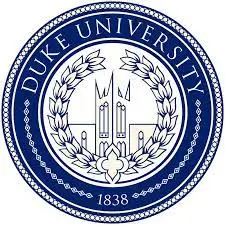

- Acceptance rate: 25%
- Average entry score: 1480-1570 SAT or 33-35 ACT
- Student-to-faculty ratio: 8 to 1
- Estimated cost of attendance (tuition and fees): $100,269
- Average earning potential for graduates: $136,700 (College Simply)
At Duke University’s Fuqua School of Business, the emphasis is on collaboration and leadership.
Students participate in team-based coursework and receive personalized coaching, fostering strong bonds and effective communication skills.
By cultivating an environment of mutual support, Duke prepares graduates for success in today’s interconnected business world.
Source: Fuqua School of Business
#18. New York University
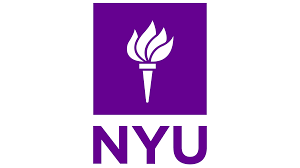

- Acceptance rate: 21%
- Average entry score: 1455 SAT or 33 ACT
- Student-to-faculty ratio: 8 to 1
- Estimated cost of attendance (tuition and fees): $80,878
- Average earning potential for graduates: $138,300 (College Simply)
New York University’s business administration program features a diverse curriculum that includes courses in accounting, economics, management and marketing. Students are encouraged to explore their interests through the school’s popular program, which can be tailored to meet specific career goals.
Graduates often excel in the banking and consulting industries, aided by the university’s powerful alumni network and career support services.
Unique to NYU is the annual career fair, where students can connect with employers from top companies like Goldman Sachs and McKinsey & Company, further enhancing their job prospects.
Source: NYU Stern School of Business
What’s it like to study at New York University?
Similar articles like this:
#17. University of Michigan Ann Arbor


- Acceptance rate: 20%
- Average entry score: 1360-1530 SAT or 31-34 ACT
- Student-to-faculty ratio: 15 to 1
- Estimated cost of attendance (tuition and fees): $32,272-$69,326
- Average earning potential for graduates: $132,700 (College Simply)
The University of Michigan’s Ross School of Business offers an extensive program in business administration. Students learn business fundamentals while also delving into recent trends.
The program provides students with practical experience, allowing them to gain skills that will benefit them throughout their careers. Graduates leave with the skills and knowledge needed to succeed in their fields.
Source: Michigan Ross
#16. University of Virginia


- Acceptance rate: 20%
- Average entry score: 1320-1510 SAT or 30-34 ACT
- Student-to-faculty ratio: 15 to 1
- Estimated cost of attendance (tuition and fees): $36,840-$70,808
- Average earning potential for graduates: $148,100 (College Simply)
The Darden School of Business at the University of Virginia emphasizes ethical leadership and responsible business practices. Using the case method, students learn to make tough decisions while considering multiple perspectives.
This rigorous approach instills a strong sense of integrity and responsibility in graduates, preparing them to tackle the challenges of modern business with conviction.
Source: Darden School of Business
#15. Boston University


- Acceptance rate: 20%
- Average entry score: 1310-1500 SAT
- Student-to-faculty ratio: 11 to 1
- Estimated cost of attendance (tuition and fees): $79,606
- Average earning potential for graduates: $102,800 (College Simply)
Boston University’s School of Management excels in providing comprehensive business administration courses, including accounting, finance, and management.
With a broad range of undergraduate business programs, graduate programs, and professional degrees, the School of Management is poised to help students reach their goals.
The school’s wide variety of programs gives students a chance to explore various aspects of business administration and learn how to apply their knowledge in real-world situations.
Their graduates often secure positions in finance and consulting sectors, benefiting from the robust alumni network and dedicated career support services that aid in job placement and professional growth.
Source: Boston University
What’s it like to study at Boston University?
#14. Emory University
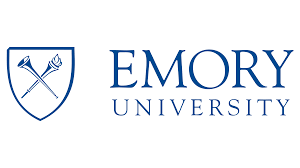

- Acceptance rate: 19%
- Average entry score: 1420-1540 SAT or 32-34 ACT
- Student-to-faculty ratio: 9 to 1
- Estimated cost of attendance (tuition and fees): $75,594
- Average earning potential for graduates: $126,200 (College Simply)
Emory University’s comprehensive business administration program encompasses a broad range of subjects, including accounting, finance, and management.
Backed by a strong liberal arts foundation, the program incorporates courses in ethics and social responsibility, making it a good choice for those who want to develop leadership skills while also learning how to make ethical decisions in today’s business world.
Many graduates find success in the banking and consulting sectors, aided by the university’s solid alumni network and career support services that facilitate job placement and professional advancement.
Source: Goizueta Business School
What’s it like to study at Emory University?
Similar articles like this:
- 25 Best Schools For Economics In The US
- 25 Best Schools For Biology In The US
- 25 Best Schools For English Language and Literature in the US
#13. University of Southern California
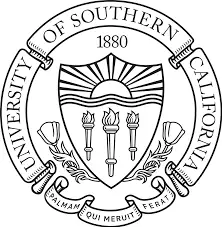

- Acceptance rate: 16%
- Average entry score: 1340-1530 SAT or 30-34 ACT
- Student-to-faculty ratio: 9 to 1
- Estimated cost of attendance (tuition and fees): $81,659
- Average earning potential for graduates: $122,100 (College Simply)
The Marshall School of Business at the University of Southern California provides a holistic education that balances theory and practice.
Through case studies, internships, and mentorship programs, students gain valuable insights from seasoned professionals.
This blend of academic rigor and real-world exposure molds graduates into well-rounded business leaders.
Source: USC Marshall School of Business
#12. Washington University in St. Louis
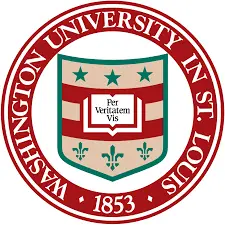

- Acceptance rate: 16%
- Average entry score: 1490-1570 SAT or 33-35 ACT
- Student-to-faculty ratio: 7 to 1
- Estimated cost of attendance (tuition and fees): $79,060
- Average earning potential for graduates: $109,400 (College Simply)
Washington University’s Olin Business School presents a well-rounded business administration program, concentrating on current trends and technologies. Students develop a comprehensive understanding of business principles and thoughtful decision-making.
The program offers experiential learning opportunities, including internships, case studies, research projects, and international study trips. Graduates are well-equipped to succeed in a dynamic business environment.
Source: WashU Olin Business School
#11. University of California, Berkeley
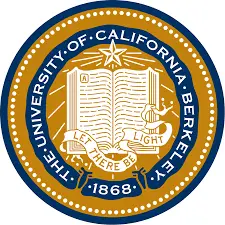

- Acceptance rate: 14%
- Average entry score: 1415 SAT
- Student-to-faculty ratio: 17 to 1
- Estimated cost of attendance (tuition and fees): $41,878-$71,632
- Average earning potential for graduates: $73,550 (Grad Reports)
The prestigious University of California, Berkeley, boasts an outstanding business administration program that prepares students for a wide variety of careers.
This school’s emphasis on innovation and creativity makes it an ideal place for students seeking a competitive edge in the business world.
Students are encouraged to think outside the box and challenge themselves with new ideas, which is why they often go on to secure positions in fields like consulting and finance.
Graduates enjoy a competitive edge in the job market, particularly in the Bay Area, thanks to the strong alumni network and exceptional career services. Berkeley’s Haas School of Business has consistently ranked among the best undergraduate programs by US News & World Report.
Source: Berkeley Academic Guide
What’s it like to study at the University of California Berkeley?
#10. Carnegie Mellon University
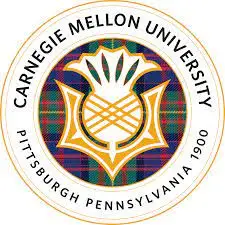

- Acceptance rate: 14%
- Average entry score: 1480-1560 SAT or 33-35 ACT
- Student-to-faculty ratio: 6 to 1
- Estimated cost of attendance (tuition and fees): $77,474
- Average earning potential for graduates: $127,600 (College Simply)
Carnegie Mellon University is known for its distinguished business administration program that emphasizes technology, innovation, and analytics. Students gain a comprehensive understanding of business strategies while honing their skills.
The program offers an immersive learning experience, allowing students to engage in experiential learning opportunities. Graduates are well-prepared to excel in their chosen careers and contribute to the business world.
Source: Tepper School of Business
Similar articles like this:
#9. Georgetown University


- Acceptance rate: 12%
- Average entry score: 1370 SAT or 29 ACT
- Student-to-faculty ratio: 11 to 1
- Estimated cost of attendance (tuition and fees): $82,505
- Average earning potential for graduates: $123,100 (College Simply)
Georgetown University’s McDonough School of Business presents an all-inclusive business administration program. Students delve into business principles and strategies, honing their critical thinking and analytical skills.
The program focuses on providing students with real-world business experience so that they can be successful when entering the workforce
Graduates leave with a comprehensive education and the tools necessary to excel in their careers.
Source: McDonough School of Business
#8. Johns Hopkins University
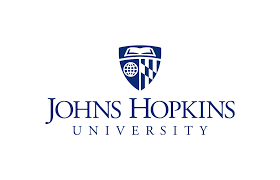

- Acceptance rate: 11%
- Average entry score: 1510-1570 SAT or 34-35 ACT
- Student-to-faculty ratio: 7 to 1
- Estimated cost of attendance (tuition and fees): $78,657
- Average earning potential for graduates: $99,300 (College Simply)
At Johns Hopkins University, students pursuing business administration can expect an extensive curriculum covering accounting, finance, and management.
Students take advantage of the friendly faculty and small class sizes to form strong relationships with their professors. They also benefit from the university’s strong focus on ethics, which is part of every major and minor program.
The university’s strong alumni network and career support services greatly contribute to graduates launching successful careers in the finance and consulting industries.
Source: Johns Hopkins University
#7. Cornell University
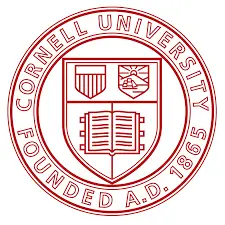

- Acceptance rate: 11%
- Average entry score: 1400-1560 SAT or 33-35 ACT
- Student-to-faculty ratio: 9 to 1
- Estimated cost of attendance (tuition and fees): $80,287
- Average earning potential for graduates: $142,300 (College Simply)
Cornell University’s Johnson Graduate School of Management offers an all-encompassing business administration program. Students deepen their understanding of business strategies while developing critical and analytical thinking skills.
The program provides students with hands-on experience through internships and other opportunities that help them learn what it takes to succeed in their chosen field. Graduates leave with a comprehensive education and the tools necessary to thrive in the business world.
Source: Cornell SC Johnson College of Business
#6. Northwestern University
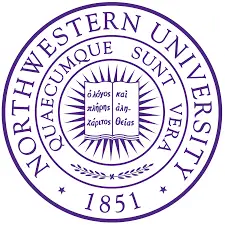

- Acceptance rate: 7%
- Average entry score: 1440-1550 SAT or 33-35 ACT
- Student-to-faculty ratio: 6 to 1
- Estimated cost of attendance (tuition and fees): $62,391
- Average earning potential for graduates: $181,600 (College Simply)
Kellogg School of Management at Northwestern University stands out with its focus on experiential learning.
Students tackle real-world business challenges through global lab courses, immersing themselves in diverse industries and markets. This approach equips graduates with the agility and adaptability needed to excel in ever-changing business landscapes.
Source: Kellogg School of Management
Similar articles like this:
#5. Vanderbilt University


- Acceptance rate: 7%
- Average entry score: 1480-1570 SAT or 34-35 ACT
- Student-to-faculty ratio: 8 to 1
- Estimated cost of attendance (tuition and fees): $79,558
- Average earning potential for graduates: $119,200 (College Simply)
Vanderbilt University’s Owen Graduate School of Management provides an innovative business administration program focusing on modern technology and strategies.
The program emphasizes teamwork and collaboration, helping students understand the global business environment.
Students engage in experiential learning opportunities, providing them with practical experience to prepare them for success in the business world.
Source: Vanderbilt Owen
#4. Yale University


- Acceptance rate: 7%
- Average entry score: 33-35 ACT
- Student-to-faculty ratio: 6 to 1
- Estimated cost of attendance (tuition and fees): $84,525
- Average earning potential for graduates: $134,900 (College Simply)
Yale University’s School of Management delivers a holistic business administration program, highlighting current trends and technologies. Students expand their knowledge of business principles and develop critical thinking abilities.
The program offers experiential learning opportunities, including internships, case studies, and consulting projects. Graduates are well-prepared to excel in their chosen fields and contribute to the business world.
Source: Yale School of Management
#3. University of Pennsylvania


- Acceptance rate: 6%
- Average entry score: 1460-1570 SAT or 33-35 ACT
- Student-to-faculty ratio: 7 to 1
- Estimated cost of attendance (tuition and fees): $65,790
- Average earning potential for graduates: $165,700 (College Simply)
The Wharton School at the University of Pennsylvania hones business administration graduates through an innovative approach to learning.
Students engage in hands-on experiences, such as the Wharton International Program, and benefit from the school’s deep-rooted connections in the industry. This empowers graduates to enter the workforce with a global mindset and the skills to tackle complex issues.
Source: The Wharton School
#2. Harvard University


- Acceptance rate: 5%
- Average entry score: 1460-1580 SAT or 33-35 ACT
- Student-to-faculty ratio: 7 to 1
- Estimated cost of attendance (tuition and fees): $76,963
- Average earning potential for graduates: $161,400 (College Simply)
Harvard University’s Harvard Business School delivers an extensive business administration program. Students develop a profound understanding of business strategies and critical thinking skills.
The program emphasizes experiential learning, providing students with practical experience to prepare them for success in the business world. Graduates leave with a comprehensive education and the tools necessary to excel in their careers, contributing to the business world in meaningful ways.
Source: Harvard University
#1. Columbia University


- Acceptance rate: 4.1%
- Average entry score: 1440-1570 SAT or 34-35 ACT
- Student-to-faculty ratio: 6 to 1
- Estimated cost of attendance (tuition and fees): $85,000
- Average earning potential for graduates: $167,700 (College Simply)
Columbia University’s business administration program stands out for its demanding curriculum and distinguished faculty. With its extensive alumni network and career services, graduates often secure positions in the financial services and consulting industries.
Columbia offers both a Bachelor of Science in Business Administration (BSBA) and a Master of Business Administration (MBA). The BSBA covers essential courses such as Financial Accounting, Managerial Economics, and Marketing Strategy
On the other hand, the executive MBA program delves deeper into subjects like International Business Environment and Corporate Finance & Investments.
Source: Columbia Business School Academics
What’s it like to study at Columbia University?
Conclusion
The best business administration schools provide students with a solid foundation in business principles, industry knowledge, and ample networking opportunities.
As we’ve explored in this post, these top institutions offer a diverse range of programs, faculty expertise, and resources that cater to the varied interests and ambitions of their students. Ultimately, choosing the right business school is a critical step in shaping one’s career trajectory and future success.
Selection Criteria
Here is a list of the factors we considered when selecting the top business schools for business administration programs:
Please note that the order in this list might vary by ranking criteria and sources.
- Reputation and ranking of the school: We looked for schools that have a strong reputation and high ranking in business administration.
- Faculty expertise, qualifications, and specialization: We researched the faculty members and their areas of expertise, and qualifications to ensure that the school has professors with relevant expertise and specialization in the areas of business administration that are of interest.
- Curriculum and resources: We evaluated the curriculum to ensure it aligns with students’ interests and career goals and considered the quality of the school’s facilities and resources, such as labs, equipment, and libraries.
- Opportunities for hands-on learning and research: We looked for schools that provide opportunities for hands-on experience through internships, co-op programs, or fieldwork.
- Student support services and alumni network: We considered the availability of support services and the strength of the alumni network in providing mentorship, internships, and job opportunities after graduation.
- Extracurricular activities and diversity: We evaluated the availability of extracurricular activities and clubs that align with students’ interests and considered the school’s diversity and inclusivity.
- Networking and post-graduation support: We researched the school’s network of alumni and their post-graduation support for business administration students, and also considered if the schools have a strong network of business professionals and researchers.
Frequently Asked Questions
Q1. What are the top factors to consider when choosing the best business administration school in the US?
Top factors to consider when choosing the best business administration school in the US include program reputation, faculty credentials, program accreditation, curriculum quality, teaching methodologies, networking opportunities, career support, tuition fees, financial aid availability, and school location.
Assessing these factors holistically will help you make an informed decision that aligns with your goals and preferences.
Q2. How do the best business administration schools in the US compare in terms of teaching methodologies and curriculum?
The best business administration schools in the US employ diverse teaching methodologies such as case studies, experiential learning, simulations, and group projects.
Their curriculum typically covers core business concepts, specialized electives, and real-world applications. Top schools constantly update their offerings to stay relevant and provide students with the most current industry knowledge.
Q3. What kind of networking and career support do the top business administration schools in the US offer to their students?
Top business administration schools in the US offer robust networking and career support through dedicated career centers, alumni networks, mentorship programs, internships, job fairs, and industry partnerships.
These resources enable students to build professional connections, sharpen their skills, and increase their chances of securing competitive job opportunities upon graduation.
Q4. How important is the school’s location when selecting the best business administration program in the US?
The school’s location plays a vital role in selecting the best business administration program, as it impacts networking opportunities, access to internships, and overall cost of living.
Proximity to major business hubs can enhance your professional exposure and increase your chances of securing local job opportunities upon graduation.
Q5. What is the application process like for the top business administration schools in the US, and what are the key admission requirements?
The application process for top business administration schools in the US typically requires a well-rounded profile, including a strong academic record, standardized test scores, work experience, recommendation letters, and personal essays.
Some schools may also require interviews. It is essential to research each school’s specific requirements and tailor your application to highlight your strengths and fit with the program.
References
[1] Official Websites
[2] Salary Data from Glassdoor, College Factual, Grad Reports, College Simply, and Zippia, among others
[3] Ranking references including news media such as 2023 Best Business Administration & Management Schools.


